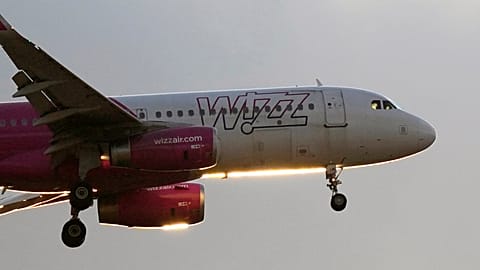By Collin Eaton and Devika Krishna Kumar
HOUSTON/NEW YORK (Reuters) - Freight rates for U.S. crude tankers bound for Asia were bid up to a more than three-year peak this week as U.S. sanctions on a Chinese transport giant cut vessel availability, traders and shipbrokers said.
The United States last week imposed sanctions on two units of China's COSCO for alleged involvement in ferrying crude out of Iran. That action prompted U.S. Gulf Coast exporters to hold back chartering COSCO-linked vessels, traders and shipbrokers said.
One of the units - COSCO Shipping Tanker (Dalian) - owns and manages at least 36 tankers for crude and refined products, including 18 very large crude carriers (VLCCs), according to shipping sources and Refinitiv data.
This week, suggested rates for VLCCs from the U.S. Gulf Coast to China vaulted to $9.8 million, up from $6.2 million in early September, according to ship broker McQuilling Services. VLCCs carry around 2 million barrels each.
To attract a ship into the Atlantic market, it's going to cost about $10 million for U.S. Gulf Coast shipments bound for China or South Korea, said another U.S. shipbroker who brokers about 20 vessels per month.
Friday's highest quote was at $9.5 million for charterer Atlantic Trading & Marketing, a unit of Total SA <TOTF.PA>, to book a VLCC from the U.S. Gulf Coast to China, shipbrokers said. The deal did not go through, the brokers said, and Atlantic Trading declined to comment.
No transactions for supertankers from the U.S. Gulf Coast to Asia have been executed this week, shipbrokers said.
Occidental Petroleum Corp <OXY.N> last week replaced a COSCO-operated supertanker, Coswish Lake, following the U.S. sanctions, by chartering smaller vessels from Texas to destinations in Asia, shipbrokers said.
The Coswish Lake had anchored off Corpus Christi, Texas, since Sept. 23 and departed on Sunday without loading crude, according to Refinitiv Eikon data.
Occidental did not respond to requests for comment.
The surge in freight costs has narrowed the window to profitably export U.S. crude to Asia and left some U.S. crude exporters reluctant to book vessels at the higher rates. That could limit November loadings and exports unless more vessels become available in coming weeks, traders said.
"People are nervous about locking freight in at these high levels, which is why the last week has been so quiet," one U.S. crude oil trader said.
Similarly, freight rates for supertankers loading West African crude in October for Asia have also risen more than 20% to nearly 90 Worldscale points. <DFRT-WAF-CN>
The rise in freight rates is driving up crude costs for Asian refiners and threatening to make shipping oil to Asia unviable, traders said.
"Currently, West African and Latin American crude are too expensive," a source with a North Asian refiner said. Economics of U.S. crude are good, but freight has become an issue, the source said.
Buyers may turn to more crude from the Asia Pacific and Middle East, which have shorter shipping distances, or spot premiums for long-distance cargoes will have to fall to displace the higher freight costs, a Singapore-based trader said.
(Reporting by Collin Eaton in Houston and Devika Krishna Kumar in New York; Additional reporting by Florence Tan in Singapore and Noah Browning in London; Editing by Lisa Shumaker and Tom Hogue)

















